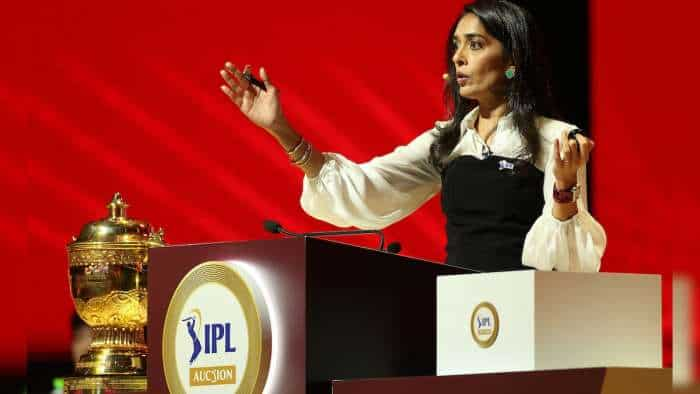Niti Aayog vice-chief Arvind Panagariya's exit a bad signal for economy?

Narendra Modi must be realising by now that it is easier to demolish than to construct. He is unlikely to have spent sleepless nights before abolishing the Planning Commission. Instead, it was widely seen as a bold move in keeping with his personality.
The scrapping of the 64-year-old institution was generally hailed as it was felt that this relic of a Soviet-style economy was out of place in a free market system.
However, the commission`s replacement by the rather pompously named National Institution for Transforming India or the NITI Aayog was perceived from the start as new wine in an old bottle.
Even then, the appointment of well-known economist Arvind Panagariya, a professor of Columbia University, as the vice-chairman gave hope that it would be an improvement on its former avatar although the commission, too, had distinguished economists in that position.
Panagariya`s selection was not surprising since he had been a long-standing supporter of Modi`s economic policies like another reputed economist settled in the US, Jagdish Bhagwati. It seemed, therefore, like a new beginning in sync with the Prime Minister`s developmental initiatives.
Over the next three years, however, the NITI Aayog was not seen as setting the official agenda, for its proposals for disinvestment and enabling women to work at night were strongly criticised by affiliates of the Rashtriya Swayamsevak Sangh (RSS) like the protectionist Swadeshi Jagran Manch and the trade union, Bharatiya Mazdoor Sangh (BMS).
Their views, which echoed the opinions of their ideological opposite, the Left, were that Panagariya was tilting in favour of the capitalists and did not know anything about the conditions in India.
For instance, as the BMS said, Indian women have to perform "heavy household duties" unlike in the West. So night shifts will be an additional burden for them. According to the trade union body, the NITI Aayog comprised "lopsided intellectuals" who were misleading the government.
It was only a question of time, therefore, before Panagariya would realise that Modi was not quite on top of the situation as he was in Gujarat. Hence, his resignation presumably because he saw that while the Prime Minister was not too bothered about a patently weak opposition, he had to contend with powerful lobbies in the saffron brotherhood whose perception of a Hindu India was totally at variance with the concept of private enterprises functioning in an open society which encouraged a large measure of freedom in terms of lifestyle choices.
Modi has tried to control some of the antediluvian elements in the social field like the gau rakshaks (cow vigilantes) or the proponents of ghar wapsi or the return of Muslims to their "original home" of Hinduism.
However, he has also allowed the stationing of saffron apparatchiki at the head of highly regarded institutions although their academic credentials are not widely recognised. Among these institutions are the Indian Council of Historical Research (ICHR) and the Indian Council of Social Science Research (ICSSR).
The Prime Minister may have taken these steps to keep the RSS in good humour so that the latter can incorporate its ideas in history books and social science research papers.
But the scene is different in the economic field. The reason is the belief in the saffron brotherhood that a buoyant economy will create an atmosphere of bold individuality which will be antithetical to the kind of paternalism favoured by the RSS. Since an academic like Panagariya could hardly be expected to counter such elements, the resignation was the easy way out.
He is the second noted economist to leave the battlefield, the other being the former Reserve Bank governor, Raghuram Rajan, who was mercilessly hounded by the BJP MP, Subramanian Swamy, towards the end of his tenure.
Swamy had also called for the dismissal of the Chief Economic Adviser, Arvind Subramanian. The latter has managed to survive, but Panagariya`s departure has opened up an empty spot which the government will find difficult to fill.
As it is, the saffron dispensation is seen to be short of talent. This paucity is exposed by the fact that Arun Jaitley is in charge of both the finance and defence portfolios -- two ministries which require full-time supervision.
While his is a political appointment, the NITI Aayog will need a reputed economist as its vice-chairman. It will not do for the government to appoint second-raters as in the ICHR or ICSSR.
The economy is Modi`s trump card. His electoral successes and 70 per cent popularity rating are the result of the continuing belief that he will be able to usher in a period of high growth and abundant employment opportunities. He needs, therefore, economists of high calibre in key positions.
But to enable them to function without let or hindrance, the Prime Minister will have to rein in the economic fundamentalists in the saffron ranks as he is doing with the Hindutva militants in the social and political fields.
ALSO READ
Get Latest Business News, Stock Market Updates and Videos; Check your tax outgo through Income Tax Calculator and save money through our Personal Finance coverage. Check Business Breaking News Live on Zee Business Twitter and Facebook. Subscribe on YouTube.
RECOMMENDED STORIES

IPL Auction 2025 Free Live Streaming: When and where to watch Indian Premier League 2025 mega auction live online, on TV, Mobile Apps, and Laptop?

SIP vs PPF: How much corpus you can build in 15 years by investing Rs 1.5 lakh per year? Understand through calculations

SBI Senior Citizen Latest FD Rates: What senior citizens can get on Rs 7 lakh, Rs 14 lakh, and Rs 21 lakh investments in Amrit Vrishti, 1-, 3-, and 5-year fixed deposits
02:27 PM IST








 India needs 2,500 universities to accommodate 50% students: NITI Aayog CEO
India needs 2,500 universities to accommodate 50% students: NITI Aayog CEO Size of Indian economy can easily double by 2030: NITI CEO
Size of Indian economy can easily double by 2030: NITI CEO India-UK FTA within finger-touching distance: NITI Aayog CEO
India-UK FTA within finger-touching distance: NITI Aayog CEO NITI Aayog calls for guidelines, E-KYC to check background of PMMY loan applicants
NITI Aayog calls for guidelines, E-KYC to check background of PMMY loan applicants Union Minister Ashwini Vaishnaw launches NITI Aayog's digital public infra platform
Union Minister Ashwini Vaishnaw launches NITI Aayog's digital public infra platform